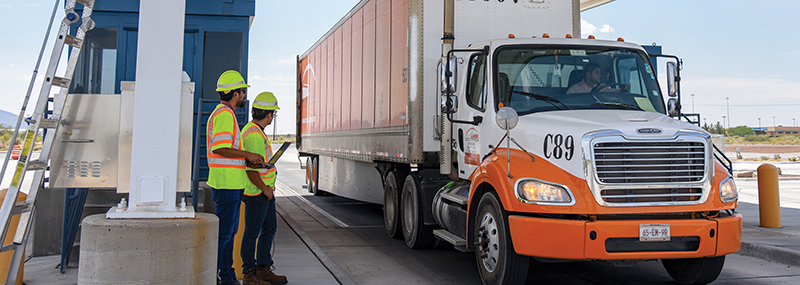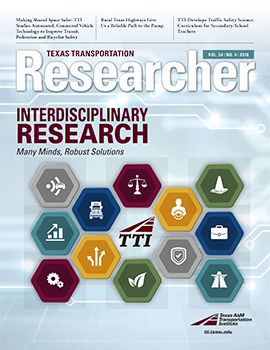The U.S. Department of Homeland Security (DHS) has awarded the Texas A&M AgriLife Research Institute for Infectious Animal Diseases (IIAD) a 10-year grant to lead its new Center of Excellence for Cross-Border Threat Screening and Supply Chain Defense. The Texas A&M Transportation Institute (TTI) is part of the interagency Texas A&M team.

“Texas A&M looks forward to bringing together its expertise in many disciplines across the A&M System to deliver new, innovative technologies to reduce the risk of biological threat introduction across U.S. borders,” says Texas A&M University System Chancellor John Sharp.
The grant awarding the new center to the university was announced Oct. 1 and will include $3.85 million in funding for the first year. Joining TTI in the new center are A&M System team members:
- Texas A&M AgriLife Research and Extension Center at Weslaco,
- Texas A&M School of Public Health,
- Texas A&M Health Science Center,
- Texas A&M College of Veterinary Medicine,
- Texas A&M Engineering Experiment Station,
- Texas A&M Engineering Extension Service, and
- Texas A&M at Galveston.
Other project partners include The University of Texas Medical Branch at Galveston, the University of Washington, IBM Research, Quidel, Host Response and SunQ.
Led by Melissa Berquist, director of IIAD, the center will focus on:
- developing and deploying technologies and methods to better detect biological threats,
- establishing novel analytics through better integrating disparate data sources,
- leveraging private-public partnerships to improve training for Homeland Security Enterprises personnel, and
- implementing next-generation methods and containment techniques for isolating dangerous pathogens to support time-critical responses by DHS.
“TTI’s previous research, demonstration projects and deployments, along with the Institute’s strong working relationship with U.S. Customs and Border Protection [CBP]and other stakeholders, contributed to the success of the proposal,” states TTI Executive Associate Director Katie Turnbull.
Established relationships with DHS, CBP, the Federal Highway Administration, and various state departments of transportation provide TTI with a unique understanding of the strengths and weaknesses of the U.S. transportation network. For the center, TTI’s research will use a combination of blockchain technology and sensors to create an immutable, auditable and traceable supply chain of data to trace product movement.
“I can think of no better example of the benefits of well-coordinated, applied research than the DHS Centers of Excellence,” states TTI Agency Director Greg Winfree. “The centers break down silos, step across organizational boundary lines, and encourage team members to work together. TTI is proud to be a part of this new center, and we look forward to working with our partners to better protect Americans nationwide.”
